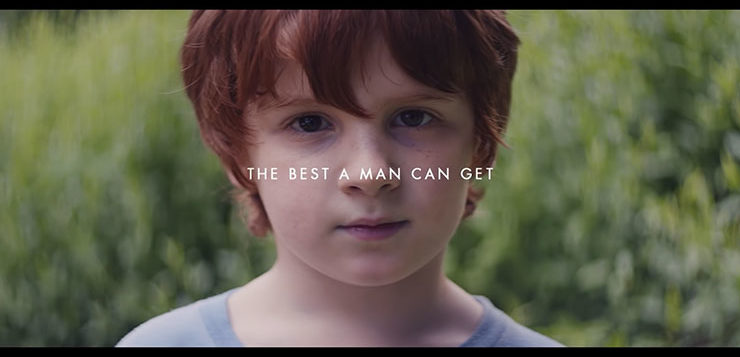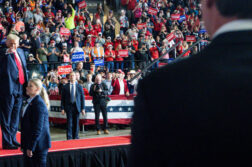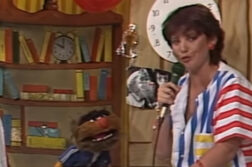As equality in advertising goes, there’s no denying it’s pretty bold.
Gillette – home of the ‘Fusion razor’ which, every few years inexplicably ads a new blade (they’re up to five now) and random new ‘innovations’ like ‘glide technology’ – has launched an ad campaign based on their old tagline, ‘Gillette, the best a man can get’, but with a twist.
The ad features leering men and bullying kids, women being groped and men standing around at BBQs excusing the conduct as ‘boys will be boys’. Gillette then asks the question ‘Is this is the best that men can get?’
It finishes with the tagline, ‘The boys watching today will be the men of tomorrow’.
The ad, released on Gillette’s official Youtube channel, has had almost a half million views in just a few days.
The ad hasn’t been warmly received by everyone, as a quick dive into the comments section reveals. Almost 21,000 comments at the time of press, and a substantial majority of them appear to be from very upset men. (A warning if you decide to dive in for a look … it pretty much goes downhill as quickly and completely as you might expect).
But is it just another major corporation trying to jump on the #metoo bandwagon, in the interests of corporate profit?
Like virtually all major companies, Procter & Gamble, the owners of the Gillette brand, does have a history of sexist television commercials, one of which attracted the attention of a young Meghan Markle in the 1990s. You might remember her from such royal weddings as ‘that big one last year’, where a black preacher went off script and delivered the greatest monologue at a royal wedding, ever.
And the board of Procter & Gamble – a company which last year reported revenue of $65 billion – continues to be dominated by men. There’s 13 people on the board, just four of them are women.
Even so, the company does also have a recent history of punching hard on equality. Since 2016, it’s been producing ‘Citizenship reports’ which document its efforts to build a more sustainable and equal world, and in 2017 the company launched an ad series called ‘We See Equality’.
It’s also launched a website – www.thebestmencanbe.org – to support the campaign, and committed the company to continue the fight for gender equality.
“Thirty years ago, we launched our The Best A Man Can Get tagline. Since then, it has been an aspirational statement, reflecting standards that many men strive to achieve.
“But turn on the news today and it’s easy to believe that men are not at their best. Many find themselves at a crossroads, caught between the past and a new era of masculinity. While it is clear that changes are needed, where and how we can start to effect that change is less obvious for many. And when the changes needed seem so monumental, it can feel daunting to begin. So, let’s do it together.
“It’s time we acknowledge that brands, like ours, play a role in influencing culture. And as a company that encourages men to be their best, we have a responsibility to make sure we are promoting positive, attainable, inclusive and healthy versions of what it means to be a man. With that in mind, we have spent the last few months taking a hard look at our past and coming communication and reflecting on the types of men and behaviours we want to celebrate. We’re inviting all men along this journey with us – to strive to be better, to make us better, and to help each other be better.
“From today on, we pledge to actively challenge the stereotypes and expectations of what it means to be a man everywhere you see Gillette. In the ads we run, the images we publish to social media, the words we choose, and so much more.”
Gillette has pledged “$1 million per year for the next three years to non-profit organizations executing programs in the United States designed to inspire, educate and help men of all ages achieve their personal “best” and become role models for the next generation.”
Let’s hope the folks over at competing firm Unilever take note – every few years they release a racist commercial for ‘Dove’, aimed at getting them tonnes of free publicity through guerrilla marketing.
In 2017, the company released a commercial showing a black woman turning herself white. A few years prior they, promoted a skin whitening cream which suggested that light skin was the ideal.
Donate To New Matilda
New Matilda is a small, independent media outlet. We survive through reader contributions, and never losing a lawsuit. If you got something from this article, giving something back helps us to continue speaking truth to power. Every little bit counts.




